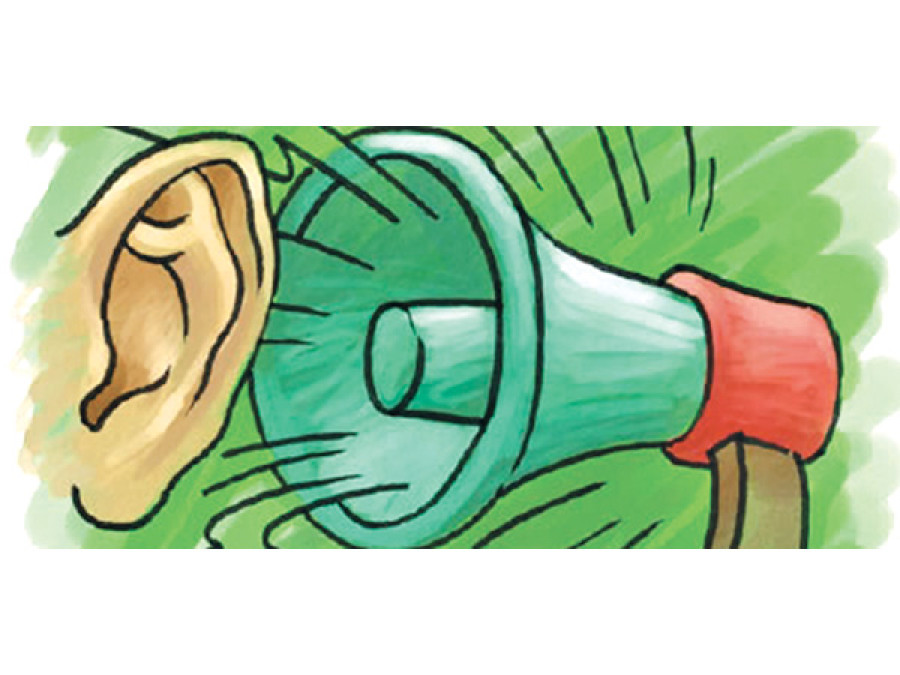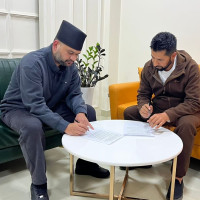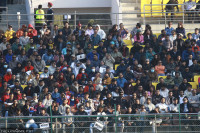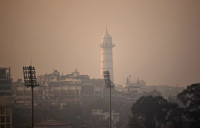Opinion
Pollution at your doorstep
Hemmed in by a generator and a disco, my house has turned into a gas and torture chamber
Sandhya Regmi
Kathmanduites are facing ever bulging health issues due to continued attacks on all three fronts: air, noise and water pollution. Nepal’s capital was recently tagged as the world’s third most polluted city. The distinction is consistent with Clean Energy Nepal’s 2014 report which revealed that the air in the city core contained 10 times more suspended particulate matter than the limit set by the World Health Organisation (WHO). Health issues created by unhygienic drinking water is a story in its own right. Less talked about but equally dangerous is noise pollution. The major culprits behind the air and noise pollution in the city are motor vehicles and diesel-powered generators.
The number of automobiles in Bagmati zone has multiplied over threefold within a decade, according to the Department of Transport Management. Bagmati accounts for 45 percent of all the vehicles registered in the country. Thanks to the persistent load-shedding induced by the state’s reckless energy policy, the valley is facing threats from another, otherwise avoidable, major culprit—diesel-powered generators. According to Clean Air Network Nepal, 59 percent of the diesel sold in the city in fiscal 2011-12 were used to run generators. In the four years since the study was conducted, the number of generators has jumped tremendously.
Pollution is directly linked to cardiovascular and respiratory diseases, damaging our health and threatening our lives. The other day, I myself was admitted to the intensive care unit. I had to be hospitalised for treatment against an extreme flare-up of my bronchial asthma as a direct consequence of the worsening pollution in the Kathmandu Valley. Like any other Kathmanduite, I am a direct victim of air, water and noise pollution. Ironically, my physical suffering is compounded by mental anguish that springs from my underlying training and consciousness about environmental matters.
Following my specialisation in environmental engineering at the National University of Singapore and research on clean energy at the University of Tokyo, I had a dream to contribute to the sustainable development of this beautiful Himalayan country by restoring and preserving its green and pollution-free environment. I knew we would have to walk miles and that it would take more than individual initiatives to realise this beautiful dream. I had, and still have, the determination to contribute my share to that end. But little did I know the harsh reality that I would have to face environmental pollution at my own doorstep.
From one side, we are tortured by Amol Cyber’s diesel generator at Dhobighat, which operates non-stop during the load-shedding hours, producing loud noise and emitting poisonous fumes of black carbon and carbon monoxide. The little garden where we could breathe the morning’s fresh air has turned into a chamber of poisonous gases and irritating noise. As a result of this pollution, my octogenarian bed-ridden parents are suffering from bronchitis, asthma, pneumonia, hypertension, depression, insomnia and loss of hearing. Besides, I am worried about fires or explosions that may erupt anytime due to lack of safety standards in the operation of that generator.
And from the other side, we are continuously distressed by Dhobighat’s Mirror Club and Lounge that runs a disco every night, from 11 pm till 4 am. Its unfettered loud noise during the prime sleeping time flouts any rational standard, depriving the neighbourhood of sound sleep and the right to live peacefully in one’s own house.
My attempts to fight these polluters have remained futile. The owner of Amol Cyber refuses to believe that using a silencer and fitting a chimney to the generators is his duty. The issue with the Mirror is more complicated. Many people in the neighbourhood are scared even to raise this noise pollution issue. Attempts by the neighbourhood police box to regulate the pub has failed. The bar’s illegal activities are being protected by some invisible powers associated with the state authorities.
Do I have the right to breathe clean air and live in a pollution-free environment in my own home? On paper, yes. Nepal’s Constitution has enshrined this as a fundamental right of the citizens. It even promises to punish polluters who are required to compensate their victims. So, unless I am living in a failed state, it has the constitutional duty to ensure the right of the citizens and punish the polluters. Considering the state’s continued assertion that it is functional, I should not be facing any problem in exercising my basic right to breathe clean air and live in a peaceful environment.
If the state has not failed in discharging its constitutional duties or is colluding with the polluters, then it owes me an answer. When will the state arrive at my locality to regulate the polluters, and how long do I need to continue living in such a suffocating environment?
Regmi is an environmental engineer




 7.12°C Kathmandu
7.12°C Kathmandu









%20(1).jpg&w=300&height=200)

